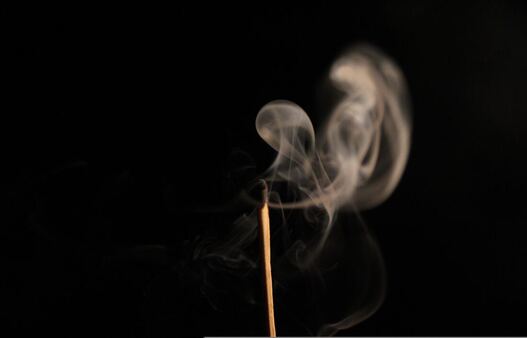All that Self-Care and You’re Still Burned Out (of Course You Are). It’s 2022 and I’m about to send a newsletter out to the Nice Girl Uprising community about burnout. As I was editing the newsletter, a blog that I had written in the Spring of 2021 popped up. I remembered that I had poured my heart into it then my laptop refused to connect to my printer. The devices had stopped communicating and it was just too much for me to handle. Instead of fixing it I took a nap on the couch in the middle of the afternoon. Sleeping…in the afternoon. Guess what the blog was about? Yep: burnout. It makes me want to laugh-cry that almost one year later, burnout is still impacting me. But of course it is, right? How could we possibly be okay after making it through these impossible times? I read through my words from 2021 and they’re still true. So here it is: let’s talk about burnout. I’ve been waiting to say the right thing. To have learned all of the good lessons and condense them down into something quick and memorable. 2021, however, has been a long year and it’s only May. About a month ago, I realized something was wrong. I was so tired. Tired, tired. For the first time in a long time I was having to motivate myself. Mini pep-talks to get through life. Basic things like work, little league baseball games, and dates with friends. My energy was so low, I had to cup it with both hands so the flame wouldn’t burn out. Then I realized: I was, indeed, entering burnout. So what is burnout? Jill Lepore from The New Yorker describes it like this, “To be burned out is to be used up, like a battery so depleted that it can’t be recharged. In people, unlike batteries, it is said to produce the defining symptoms of ‘burnout syndrome’: exhaustion, cynicism, and loss of efficacy.” Though burnout has historically been used to describe a response to workplace stress, it can be argued that burnout can be caused by other stressors too. Oh I’ll argue it, in fact. If you took care of anything in 2020 may it be a child, a dog, or a houseplant, you’re probably burned out. 2020 was a beast. We learned to live with uncertainty, constant changes, political divisiveness, fear and confusion about a virus, worked from home, became our kids’ teachers, and had severely limited social support. It was exhausting. My professional self would like to use the word “challenging” to sum it up, but I’m going to go ahead and call the year “grueling”. In the book, “Burnt Out: The Exhasuted Person’s Six-Step Guide to Thriving in a Fast-Paced World,” Selina Barker lists the following symptoms of burnout:
The author differentiates full-blown burnout from a mini burnout (which I had) by the number and severity of symptoms and the amount of time it would take to recover. Full-blown burnout may keep you out of normal life functioning for several weeks whereas a mini-burnout could last a few days. When I noticed this started happening for me, I had to ask two very important questions. The first question was, “How do I differentiate burnout from depression?” This is a tricky question to answer because burnout can co-occur with depression and depression can look a lot like burnout. I think we need to look at our schedules, the triggers to our symptoms, and consult a mental health professional to gain clarity. I realized that I was over-doing for too long. I pushed hard and kept adding more to my plate. The extra busy-ness began to feel normal. I felt like I had the capacity for more. More was normal. Comfortably uncomfortable. The second question I had was, “With all of this self-care how in the world am I burned out?” The quick answer: NO FREE TIME. I’m a self-care doer and be-er. I love my self-care. I say NO, I gua sha my face, I drink half of my body weight in ounces of water, I go on walks, I meditate, I read, I workout, I spend time with my family, I have coffee with good friends. I do the things. Every day. I tell other people to do the things. I’m self-care’s biggest fan. But 2020 reduced our orbit. Some of us worked from home. We didn’t go out as much. We saw our extended friends and family less. The commute from work to home, teaching to making, cleaning to the next activity was short. We sort of just changed our hat and carried on without missing a beat. But we missed something really important: connecting with ourselves. We tune-in through free time. Time that is unscheduled and open. Time that we can use playing the guitar, watching Netflix, or swinging in the hammock with the sole purpose of connecting with ourselves. Free time. Time to do whatever we please. We don’t really have that anymore. So I had to make it. I had to set the brake. I made an agreement with myself to limit my work hours and caseload. I made the commitment and told others about it. Accountability is what I needed when the asks re-entered my world. I had to say NO (a lot). If I found something to be too energetically taxing, I said no. If I had to squeeze the thing in or if it would cause me to rush, I said no. If the thing activated my anxiety or caused a sense of dread, it was a no. No, no, no. The duty of yes got me here so the love of no was going to help me get out. Then I had to move beyond self-care. I needed free time. I started putting space in my day. I attempted to relax when the schedule didn’t call for a plan. I tried to be slower when I spoke, when I transitioned from one thing to the next, when I made decisions. Burnout is rushed and exhausted. Freedom is slow and full. I want freedom. Why am I sharing my experience of burnout with you? Because I want to give a name to the experience that so many of us are having. I want to normalize it, validate it, and help you move through it. If you connect with any of the symptoms of burnout, I encourage you to learn more about it. Find articles, read books, contact a coach or a therapist. Most importantly, connect with yourself and choose the path of healing that feels right for you. You might be experiencing burnout and that’s okay. You can make shifts in your life that will bring you peace. Trust me, there’s so much less to do. Copyright © 2022. All Rights Reserved.
Nice Girl Uprising, Jennifer Padilla-Burger Comments are closed.
|
|



 RSS Feed
RSS Feed